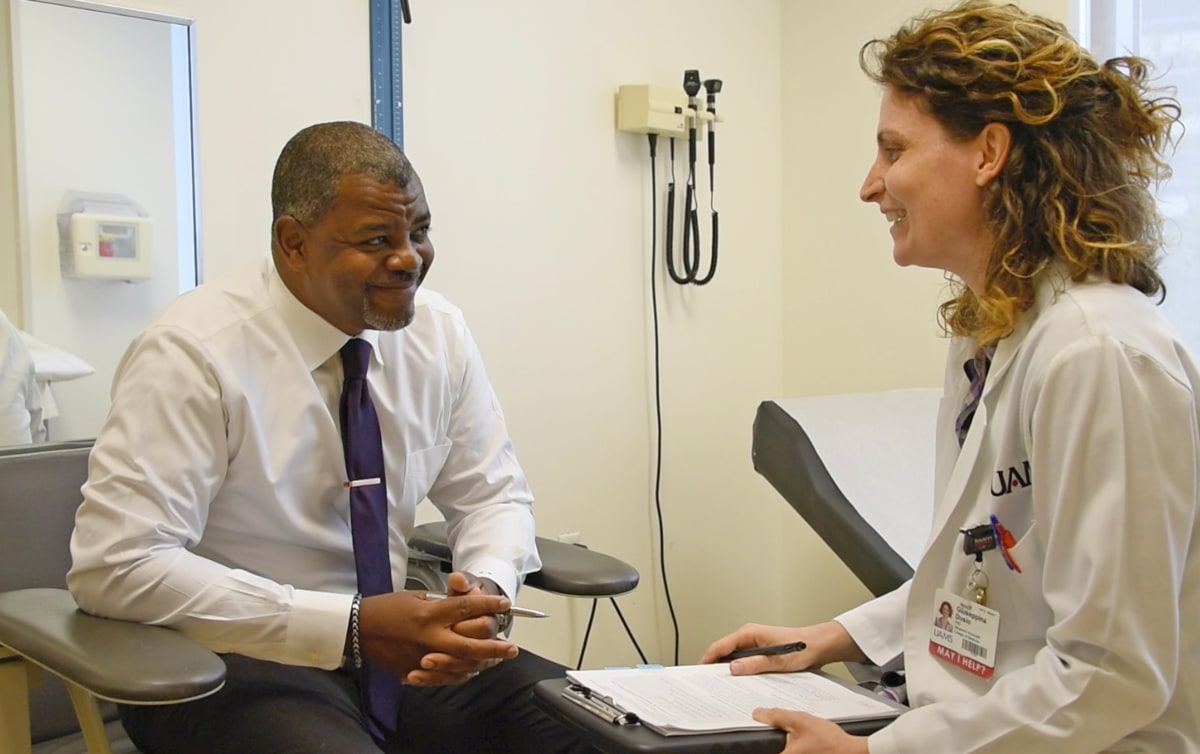ARresearch Study Participants Celebrated on Clinical Trials Day
| As part of today’s international Clinical Trials Day 2022, research leaders saluted the more than 8,400 Arkansas volunteers in the ARresearch registry at the University of Arkansas for Medical Sciences (UAMS).

Jean McSweeney, Ph.D., RN
“We have had an incredible response from people in all 75 counties who want to be part of our research,” said Jean McSweeney, Ph.D., RN, professor emeritus in the College of Nursing who leads the ARresearch program at the UAMS Translational Research Institute. “They are helping UAMS address important health issues, and Clinical Trials Day is a perfect opportunity to recognize their contributions.”
McSweeney, who also led the establishment of the program in 2016, said the registrants’ willingness to participate has helped researchers advance their projects more quickly and reach their participant enrollment goals.
This has been especially helpful for COVID-19 research.
Having the ready pool of diverse ARresearch registrants made it possible for a UAMS research team to quickly study COVID-19 vaccine hesitancy, which led to a major publication award. It also helped another team quickly gather preliminary data to secure a National Institutes of Health grant for expanded COVID-19 research.
“The ARresearch registry is an incredible resource because it includes people who are already motivated to participate in research,” said Don Willis, Ph.D., lead author of a study by the UAMS Office of Community Health & Research.

Don Willis, Ph.D.
His team’s article on COVID-19 vaccine hesitancy became the most downloaded paper in 2021 from the journal Clinical and Translational Science, and it received the 2022 Clinical and Translational Science Award from the journal’s publisher, the American Society for Clinical Pharmacology & Therapeutics (ASCPT).
The study, “COVID-19 Vaccine Hesitancy: Race/Ethnicity, Trust and Fear,” was recognized as the journal’s paper that most reflects ASCPT’s goals of advancing diversity, equity and inclusion.
“We used the ARresearch database exclusively, and the sample was really good and really diverse in terms of race and ethnicity,” said Willis, an assistant professor, explaining that the UAMS registry is much more efficient than random sample surveys that require contacting people who may not want to be bothered.
The registry’s race and ethnicity demographics closely mirror the state, with 73.6% Caucasian/white, 18.1% African American/Black, 5.2% Hispanic, 3.3% Native American or Pacific Islander, 1.9% Asian, and 1.9% other.
John Arthur, M.D., Ph.D., a professor and clinical researcher and associate director of the Translational Research Institute, has also used the registry for kidney research.

John Arthur, M.D., Ph.D.
“I couldn’t have done my research without the ability to reach a large number of volunteers,” Arthur said. “ARresearch has been fabulous for that, and I couldn’t be more grateful to everyone who signed up and was able to participate.”
Clinical Trials Day is celebrated around the world, recognizing clinical research professionals and volunteer participants for their contributions to the medical advances achieved through clinical trials.
Gov. Asa Hutchinson signed a Clinical Trials Day proclamation in 2018 at the request of the UAMS Translational Research Institute. The proclamation includes a brief history of Clinical Trials Day, which celebrates the first randomized clinical trial — the famous study in 1747 that determined citrus fruit could prevent scurvy.
